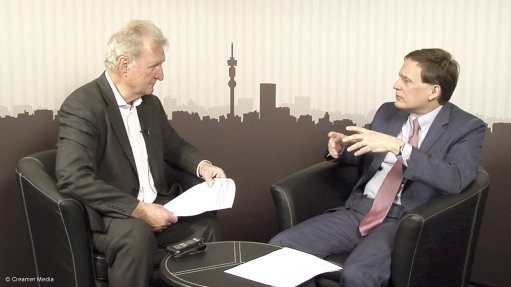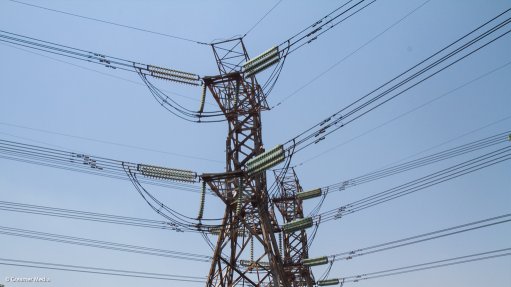Big Brother is still watching
Nineteen eighty-four is now 35 years ago. It is also the title of a book by George Orwell, 1984, published 70 years ago.
The book begins: “It was a bright cold day in April, and the clocks were striking thirteen.” And here we have an immediate clue – somebody has altered the means of keeping time to a 24-hour system. Which leads me to the question: in a book about the future, why do clocks strike at all? When it is midnight, do you have to listen to clock strikes for 24 seconds? But anyway.
The book is about a future in which communism has taken hold. The population is under constant control and surveillance. The chief of the controlling authority is called Big Brother, and all over the world there are signs: ‘Big Brother Is Watching You’. Orwell dots his book with telescreens, a sort of interactive TV, which project information and, at the same time, can communicate with you. The story is this: Winston Smith is a clerk in the records department of the Ministry of Truth. His job is to rewrite historical documents so they match the constantly changing current party line. He falls in love with a girl from the fiction department, Julia. They join a resistance movement and are captured and tortured. Winston is brainwashed until he loves Big Brother.
The book is outstanding in its imagination (not the least since it is unlikely that Orwell ever saw a TV). It predicts a future which we are confident has not and will never happen. However, this is a fallacy. We all know, or we should know, that we are being recorded all the time. About three years ago, goverment announced its plan for a new ID. We would all get an ID with our fingerprints on it. The banks, never slow to create new bureaucracy, offered to collect fingerprints from their clients and give them to government, thus allowing government to fingerprint-identify your bank account. The Chinese, never slow to smell an opportunity, began producing kits which allowed you to make a fake fingerprint that would stick to your finger, thus allowing you to take money out of somebody’s account. Epic fail.
But now we have Google encouraging you to give voice instructions to your phone, which will allow the creation of a database so that you are indentified by voice prints. We naturally have given permission for this by ticking some ‘terms and conditions’ box on some app months ago. As Louis Menand, of The New Yorker, writes: “When we click ‘I Agree’ on the banner explaining our app’s new privacy policy, we did not know what the old privacy policy was; we feel fairly certain that, if we read the new one, we would not understand what has changed or what we are giving away. We suspect everyone else just clicks the box. So we click the box and dream of a world in which there are no boxes to click.”
There is also the matter of the ‘location’ feature on a cellphone. Not a day goes by when some message wants me to turn on my location. Why? But it is relentless – sooner or later the Millennial generation won’t care that their cell number is known to a central authority; that their address and photograph of their dwelling can be viewed by all; that their movements are tracked; that their voice print is in a central database. Naturally, the central authority will assure you that “all personal details are kept confidential”. This is about as likely as nobody in a small town talking about the mayor’s drug habit.
The big question is: Why? Who gains from having gigabytes of personal information? Naturally, advertising and sales benefit but is it that important to know everything? Is there some much more sinister thing? I think so, else they wouldn’t do it. Big Brother Is In Fact Watching.
Article Enquiry
Email Article
Save Article
Feedback
To advertise email advertising@creamermedia.co.za or click here
Comments
Press Office
Announcements
What's On
Subscribe to improve your user experience...
Option 1 (equivalent of R125 a month):
Receive a weekly copy of Creamer Media's Engineering News & Mining Weekly magazine
(print copy for those in South Africa and e-magazine for those outside of South Africa)
Receive daily email newsletters
Access to full search results
Access archive of magazine back copies
Access to Projects in Progress
Access to ONE Research Report of your choice in PDF format
Option 2 (equivalent of R375 a month):
All benefits from Option 1
PLUS
Access to Creamer Media's Research Channel Africa for ALL Research Reports, in PDF format, on various industrial and mining sectors
including Electricity; Water; Energy Transition; Hydrogen; Roads, Rail and Ports; Coal; Gold; Platinum; Battery Metals; etc.
Already a subscriber?
Forgotten your password?
Receive weekly copy of Creamer Media's Engineering News & Mining Weekly magazine (print copy for those in South Africa and e-magazine for those outside of South Africa)
➕
Recieve daily email newsletters
➕
Access to full search results
➕
Access archive of magazine back copies
➕
Access to Projects in Progress
➕
Access to ONE Research Report of your choice in PDF format
RESEARCH CHANNEL AFRICA
R4500 (equivalent of R375 a month)
SUBSCRIBEAll benefits from Option 1
➕
Access to Creamer Media's Research Channel Africa for ALL Research Reports on various industrial and mining sectors, in PDF format, including on:
Electricity
➕
Water
➕
Energy Transition
➕
Hydrogen
➕
Roads, Rail and Ports
➕
Coal
➕
Gold
➕
Platinum
➕
Battery Metals
➕
etc.
Receive all benefits from Option 1 or Option 2 delivered to numerous people at your company
➕
Multiple User names and Passwords for simultaneous log-ins
➕
Intranet integration access to all in your organisation


















